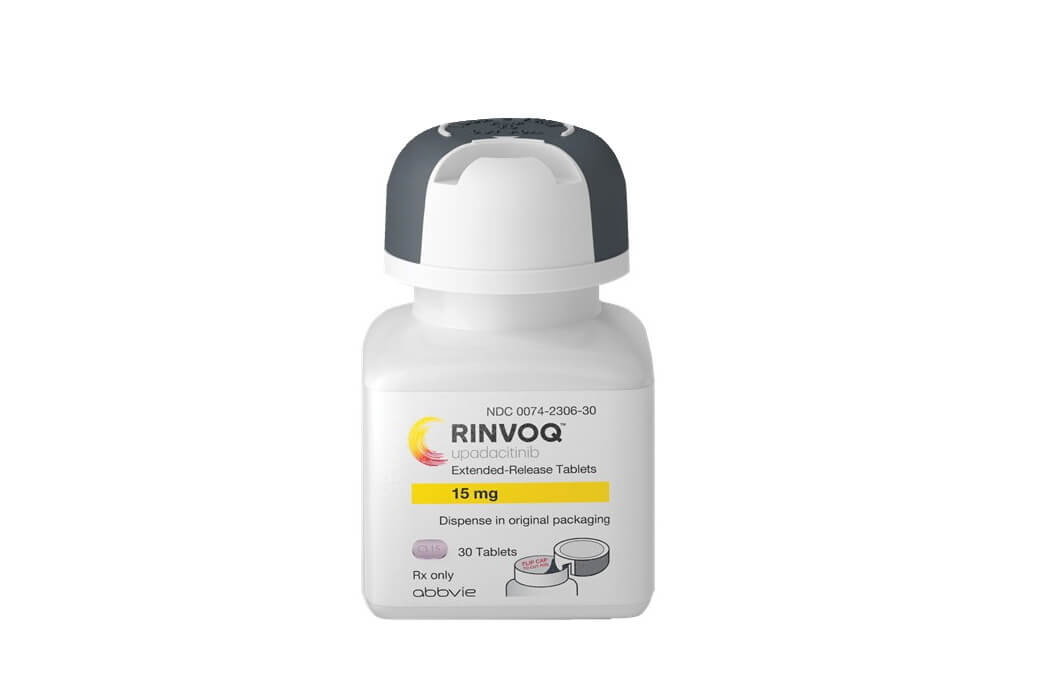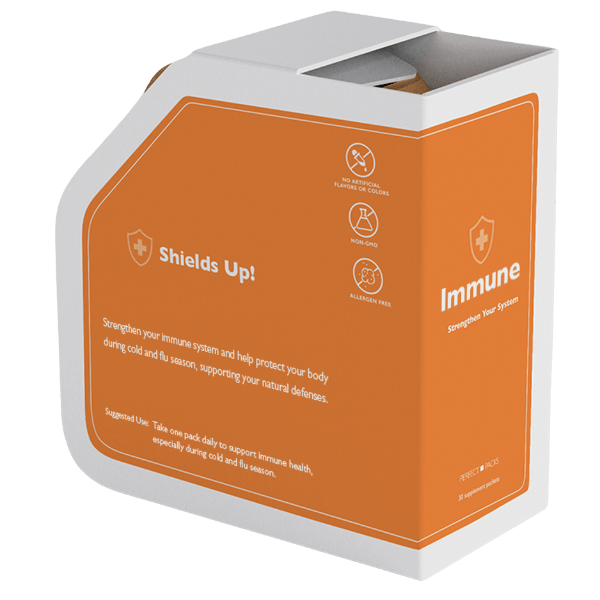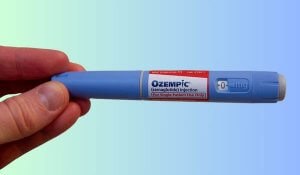This text is for informational purposes only. Please consult a doctor or pharmacist before using any medication.
Read the information leaflet that comes with the medication.
If a sudden allergic reaction (anaphylaxis) occurs after taking Rinvoq, with symptoms like swelling of the face, tongue, or throat making it difficult to breathe or swallow, or there is wheezing, hives, rash, blistering, or peeling of the skin, call a doctor or 911 right away, or go to an emergency room immediately.
Most people who use Rinvoq do not experience any adverse side effects. Doctors prescribe this medication because they assess the benefits of such treatment outweigh any likely unwanted effects.
Some of the side effects that have been reported include upper respiratory tract infections like a common cold or sinus infection, cough or bronchitis; shingles or cold sores; nausea, fever or headache; acne or mild allergic reactions, inflammation of hair follicles; abdominal pain or muscle pain. In general, these should pass within a few days. If they persist or get worse, report this to your healthcare provider or pharmacist immediately.
Rinvoq may cause serious side effects, including:
- Reduced resistance to infections. Serious infections have been reported, including tuberculosis (TB). ou should have been tested for TB before starting Rinvoq and you should be checked during treatment with Rinvoq. If you get a serious infection, report this immediately to your healthcare provider, who may stop your treatment until your infection is controlled.
- For people 50 years and older who have at least one cardiovascular risk factor, there is an increased risk of major CV events, such as blood clots, heart attack, stroke, or death. Symptoms of a heart attack include
- Discomfort in the center of your chest that lasts for more than a few minutes or that goes away and comes back
- Severe tightness, pain, pressure, or heaviness in your chest, throat, neck, or jaw
- Pain or discomfort in your arms, back, neck, jaw, or stomach
- Shortness of breath with or without chest discomfort
- Breaking out in a cold sweat
- Nausea or vomiting
- In case of a stroke, the symptoms can include feeling lightheaded, feeling weakness in one part or on one side of your body and slurred speech
- Rinvoq may increase your risk of certain cancers, including lymphoma and skin cancers. Current or past smokers are at higher risk. Follow your healthcare provider’s advice about having your skin checked for skin cancer during treatment with Rinvoq. Limit the amount of time you spend in sunlight. Wear protective clothing when you are in the sun for prolonged periods, and use sunscreen.
Rinvoq is not recommended during pregnancy due to potential risks to the fetus. Breastfeeding should be avoided while taking the medication.
Rinvoq is approved for the treatment of rheumatoid arthritis (RA), psoriatic arthritis (PsA), atopic dermatitis (AD), ulcerative colitis (UC), Crohn’s disease, ankylosing spondylitis (AS), and axial spondyloarthritis. These conditions are caused by chronic immune system dysfunction leading to excessive inflammation. Rinvoq helps regulate immune responses to control symptoms and prevent disease progression. Rinvoq is used to treat adults whose condition cannot be controlled adequately with disease-modifying anti-rheumatic medicines (DMARDs) or if the patient does not improve after treatment with a TNF (tumor necrosis factor) blocker or it could not be tolerated:. The conditions include:
- Moderate to severe rheumatoid arthritis (RA), with symptoms like joint pain, swelling, stiffness, and fatigue. It can be used on its own or along with methotrexate
- Active psoriatic arthritis (PA) associated with psoriasis, which shows up as red, scaly patches on the skin. It presents symptoms like inflammation of the joints, joint pain, swelling, stiffness, and fatigue. Rinvoq can be used on its own or with methotrexate
- Active axial spondyloarthritis (AS) and non-radiographic axial spondyloarthritis, when there are clear signs of inflammation but X-ray does not show disease
- Moderately to severely active ulcerative colitis (UC) and Crohn’s Disease. These are diseases that causes inflammation and ulcers in the lining of the bowel and which in the case of Crohn’s Disease can spread throughout the body. Symptoms are persistent diarrhea, abdominal pain, weight loss, and rectal bleeding.
As well, adults and children from 12 years of age with moderate to severe atopic dermatitis (also known as eczema, when the skin is itchy, red and dry) can be treated with oral medication or by injection.
Rinvoq is approved only when other medicines, including biological medicines, do not or no longer work, or if the patient cannot take them.














